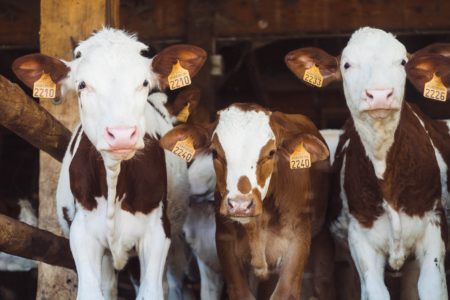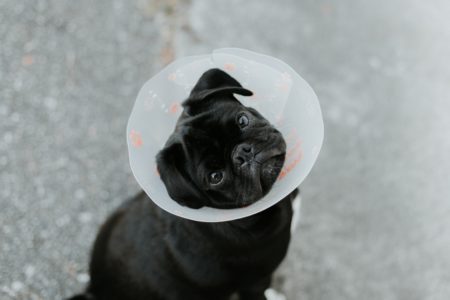Veterinarians associations throughout the European Union are sounding the alarm bell over a Motion for a Resolution by Member of the European Parliament Martin Häusling (Germany, Greens) which was passed by a majority in the Parliament’s Committee on the Environment, Public Health and Food Safety earlier this summer. The Motion is up for vote in the plenary session of the Parliament in mid-September 2021 and sets out to limit the use in food-producing animals of critically important antibiotics/antimicrobials that are reserved for the treatment of certain serious infections in humans.
In his letter to the European Parliament of 14th July 2017 then European Commissioner for (human) health Vytenis Andriukaitis – a medical doctor turned politician himself – responded negatively to a proposal to ban the sales of antibiotics by veterinarians. Apparently pushed by veterinarians inside the European Commission and inside Member State delegations he explicitly informed the Parliament that: “We believe that introducing the limitation for retailing antibiotics by veterinarians only to animals under their care and only in the amount required for the treatment concerned is a concrete, effective step. Veterinarians are professionals who know best how to treat animals under their care and we believe this principle should not be forgotten or underestimated.” Clearly, prescribing is something else than selling, and there is the snag: According to an agricultural expert at the German environmental organization ‘Deutsche Umwelthilfe’, some veterinary practices take up to 78 percent of their turnover from the sale of antibiotics. Remarkably, the final words of Dr Andriukaitis’ letter are obviously his own and based on his own experience: “But the time has come to rethink the moral and ethical issues of prescribing. Doctors need to accept that it is unethical and immoral to prescribe inappropriately. Inappropriate prescribing, when an antibiotic is not necessary, can cause harm to the patient and harm to other patients who may later become infected with resistant bacteria. That is unethical. It is as simple as that.” Obviously this begs the question why these ethics and morals seem not to apply to veterinarians. Both the lobby of the veterinarian associations and the ethics and morality of veterinarians require the European Parliament’s explicit scrutiny. Because if the current European Commissioner Stella Kyriakides establishes for a fact that AMR may be the next pandemic, the question must be answered and followed up why so many antibiotics continue to be produced and used, particularly in husbandry with a forecasted global growth of antibiotics use of 67%. Somebody is prescribing and selling this.
 Of course, the largest part of antibiotics sales through veterinarians is not to families’ pets but to commercial farm animals (around 66%). Statistics indicate that these continued sales of antibiotics through veterinarians to farmers are the cause of continued overproduction and overuse of antibiotics. Through the consumption of animals fed with antibiotics to prevent disease and to promote growth (chicken, pork, cattle, fish) multiple- or totally-resistant bacteria can create incurable infections in humans, causing their death while contributing to an eventual Antimicrobial Resistance (AMR) outbreak. Such outbreaks now regularly occur in the PR China where dramatic antibiotic overuse and resulting outbreaks have led to legal bans of the use of several antibiotics in husbandry. Such restrictions are now attacked by veterinarians who, like medical doctors, should perhaps not have an interest in selling medicines and certainly not in this volume. Of course, the largest part of antibiotics sales through veterinarians is not to families’ pets but to commercial farm animals (around 66%). Statistics indicate that these continued sales of antibiotics through veterinarians to farmers are the cause of continued overproduction and overuse of antibiotics. Through the consumption of animals fed with antibiotics to prevent disease and to promote growth (chicken, pork, cattle, fish) multiple- or totally-resistant bacteria can create incurable infections in humans, causing their death while contributing to an eventual Antimicrobial Resistance (AMR) outbreak. Such outbreaks now regularly occur in the PR China where dramatic antibiotic overuse and resulting outbreaks have led to legal bans of the use of several antibiotics in husbandry. Such restrictions are now attacked by veterinarians who, like medical doctors, should perhaps not have an interest in selling medicines and certainly not in this volume.
A new Economist Intelligence Unit report (August 2021) has demonstrated that the late realization of the seriousness of the Covid-19 outbreak has costed the global economy 2.5 trillion USD. The anticipated cost in human lives and in economic losses of an AMR outbreak is a multiple of what Covid-19 caused. Now that is the global and European theater in which the veterinarians associations now claim that, if passed, restrictive antibiotics sales legislation would hamper the treatment of your pet animals such as dogs, cats and rabbits. Is that true? In an Open Letter to the German Association of Practicing Veterinarians (BPT) Mr Häusling writes that his Resolution merely formulates clear regulations that allow individual animal treatment while severely restricting mass treatment (which can only be understood to be preventive or promoting animal growth – both outlawed already). The list of antibiotics that would be excluded for such mass treatment would follow guidelines set by the World Health Organization. These clearly define which antibiotics can no longer be massively used in animal ‘factories’. Currently, for example in the case of turkey fattening, if individual sick animals are discovered here, the entire herd is often treated, even if the majority of the animals are still healthy. Such massive use promotes the development of multi-resistant bacteria which can also enter the environment through wastewater or manure from stables, as highlighted in a study by Greenpeace.
Greenpeace’s warnings of global warming were correct. But even today’s remedial industrial action is too slow, among others leading to worsening weather types – ten times more floods, forest fires, than in the past. All Member States of the United Nations have agreed that carbon taxing is the most effective way to stop and eventually reduce global warming. This also applies to AMR. By taxing antibiotics – as some EU Member States already successfully do – the antibiotics use will be truly reduced. Antibiotics are simply too cheap to not use as animal disease prevention and growth promotion – and veterinarians know that. So if the Member States authorities and EU institutions do not dare to treat veterinarians in the same way as medical doctors, perhaps the tax authorities can now be stimulated to make the taxing of antibiotics first a European and next a global rule. Or suffer the consequences of a devastating AMR outbreak.
Sources:
o https://martin-haeusling.eu/presse-medien/pressemitteilungen/2762-offener-brief-an-bundesverband-praktizierender-tieraerzte-bpt.htmlhttps://today.rtl.lu/news/luxembourg/a/1774071.html
o https://www.standaard.be/cnt/dmf20210820_97536314
o https://www.br.de/nachrichten/deutschland-welt/antibiotikaverbot-ist-das-leben-von-haus-tieren-in-gefahr,SgSWbVj
o https://www.ncbi.nlm.nih.gov/pmc/articles/PMC4426470/
o https://www.greenpeace.de/sites/www.greenpeace.de/files/publications/181129-greenpeace-report-dirty-waters.pdf |